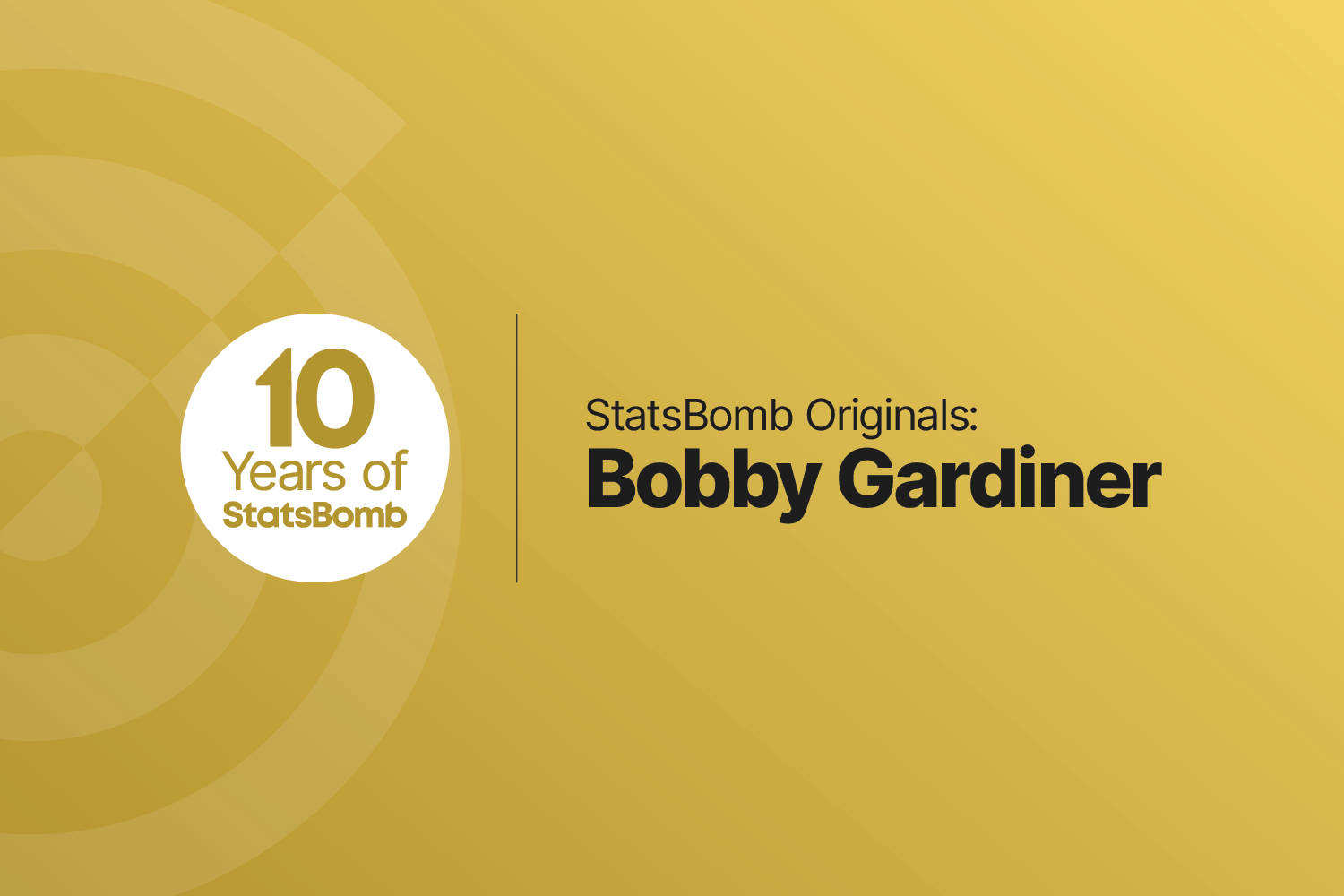This summer, StatsBomb is celebrating a special anniversary: 10 years since the site was formed and the first blog post was published.
A decade ago, the football analytics community was nascent, with a handful of prolific analysts experimenting with whatever football data they could get their hands on – which wasn’t a lot. But with every new blog post, a new analyst would be inspired, they'd write a new blog post... and so the community grew.
Ted (Knutson, now CEO of StatsBomb) created StatsBomb.com to house his own writing, but mostly to act as a centralised hub to amplify the work of the early analysts and researchers (for more on that you can read Ted’s 10 Years of StatsBomb blog post). Ten years on, we’ve spoken to some of those early contributors and will be sharing those conversations in a succession of articles that we’re calling the StatsBomb Originals series.
A warm welcome back to Bobby Gardiner.
Bobby first came onto the analytics scene a decade ago, analysing the performances of Swansea City, his supported club, and the possession-based football they played in the Premier League. He quickly established himself as an analyst with both knowledge of the game and technical skill and, after a couple of jobs in-and-around the football analytics industry, was hired by AC Milan, helping them to their first Serie A title win in over a decade in the 2021/22 season.
Here’s Bobby.
What was the first thing you worked on as an analyst? Do you remember your first “analytics experiment” or lightbulb moment?
Bobby Gardiner (BG): My early work was analysing Swansea, whose possession game I’d fallen for. When we somehow finished 8th under Garry Monk, I couldn’t just enjoy it and had to analyse it instead.
What has been your favourite piece to write or read on StatsBomb?
BG: Marek Kwiatkowski’s “Towards a New Kind of Analytics” comes to mind, along with anything Thom Lawrence ever wrote. My favourite pieces to write were Swansea’s season previews - being in The Premier League was cool.
Whose work did you read early on? Where did you read this early work?
BG: Mike Goodman, Michael Caley, Dan Altman, Ted Knutson, Ben Pugsley, Colin Trainor, Thom Lawrence, James Yorke, Ben Torvaney, Max Odenheimer, Sam Gregory, Tom Worville; the list goes on. Between Grantland, StatsBomb, ESPN, Washington Post, and the personal blogs, we were really spoiled.
Do you remember any particular articles that inspired you? Ideas or metrics or research?
BG: I always loved how Mike Goodman approached narratives through analytics. Early on, I was more often inspired by being annoyed with traditional journalists.
Are there any metrics/frameworks from the “early days” that you still use in your work now?
BG: For better or worse, we can’t escape Expected Goals and the terrible name.
Do you remember any particularly bad analytically-driven takes you had in the past, or work that you would approach differently knowing what you know now?
BG: My most egregious takes have come from assuming that a player’s current or previous output is more descriptive or predictive than it really is. Especially with the youngest players, the difference between an elite-ceiling and an above-average ceiling can be impossible to distinguish from the data alone.
Where has your analytics work taken you and your career?
BG: I’ve been incredibly fortunate to work for AC Milan for over 4 years.
How would you rate the progression of analytics in the last 10 years, in terms of both research and application?
BG: In terms of job opportunities, the commercial aspect, and research, I’m astounded by the progress and very grateful to have been in the right place and time when things exploded.
What are you most excited about in the future for football analytics?
BG: I am on my knees begging for someone to prove that not only do coaches matter, they can matter more than the players. I’m also really looking forward to spatial data becoming more available for player recruitment.
Our sincere thanks to Bobby for giving up his time to share his experiences with us. We’ll be back next week with more from the StatsBomb Originals series.
